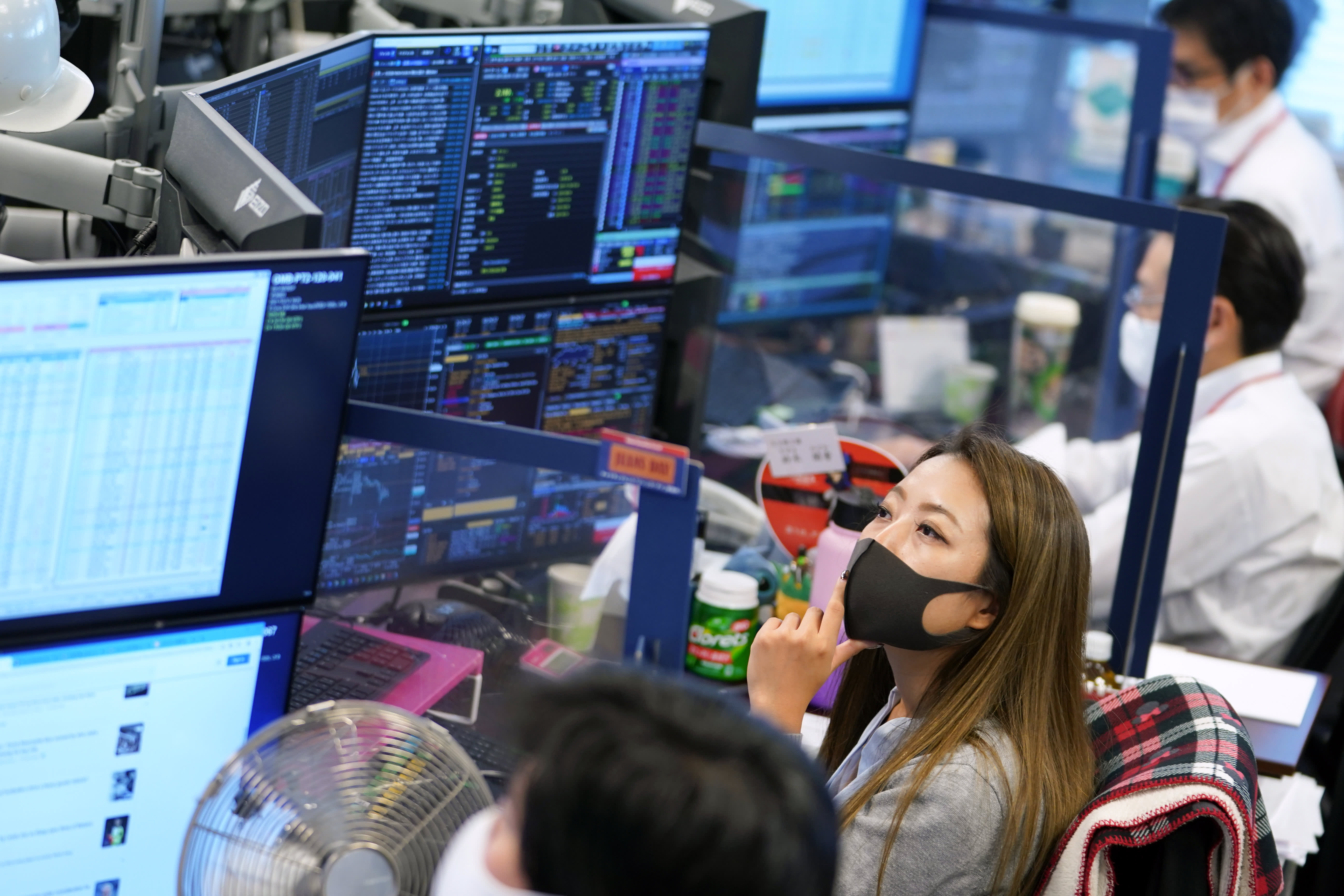
SINGAPORE — Asia-Pacific markets were mixed Thursday as investors digested the U.S. Federal Reserve's indications that its run of ultra-easy monetary policy since the start of the pandemic is coming to a close.
In Japan, the Nikkei 225 rose 2.13% to 29,066.32 while the Topix index added 1.46% to 2,013.08. Auto shares advanced, as did tech and retail stocks. Nissan soared 4.07%, while Fast Retailing rose 3%.
In South Korea, the Kospi rose 0.57% to 3,006.41.
Hong Kong's Hang Seng index reversed losses in late-afternoon trade and added 0.23% to 23,475.50. Chinese mainland shares advanced: The Shanghai composite rose 0.75% to 3,675.02 while the Shenzhen component rose 0.58% to 15,112.81.
In Australia, shares struggled for gains. The benchmark ASX 200 fell 0.43% to 7,295.70 as sectors such as energy and materials fell 1.17% and 0.28%, respectively.
The country's central bank governor said the Reserve Bank of Australia will not increase interest rates until actual inflation is sustainably in the 2% to 3% target range — that is unlikely to happen next year.
"We are still a fair way from that point. In our central scenario, the condition for an increase in the cash rate will not be met next year," Philip Lowe said, addressing the CPA Australia Riverina Forum on Thursday. But, the central bank is prepared to taper, or potentially cease, its bond purchases next year if the economic recovery is in line with the Reserve Bank Board's goals, and it may happen as early as February.
"While we flagged a possible February end to [quantitative easing] earlier this month, today's speech makes it the most likely option in our view," ANZ Research analysts said in a note. They added that the greatest uncertainty facing Australia is the impact of the omicron Covid variant, particularly the number of people getting hospitalized due to the strain.
"The potential for government mandated shutdowns to delay the recovery and the eventual pick-up in inflation could defer the end of [quantitative easing] ," the ANZ analysts said.
Elsewhere, data from the Australian Bureau of Statistics showed seasonally adjusted employment rose by a massive 366,000 people in November as many of the jurisdictions came out of Covid-related lockdowns. The unemployment rate fell
Thursday's session in Asia followed overnight gains on Wall Street.
Stateside, the Fed said it will accelerate the reduction of its monthly bond purchases — the central bank will be buying $60 billion per month of bonds starting in January, down from December's rate of $90 billion, and said that it will likely continue that trajectory in the months ahead.
Once that wraps up, in late winter or early spring, the central bank expects to start raising interest rates. Projections released overnight indicate that Fed officials see as many as three rate hikes coming in 2022, with two in the following year and two more in 2024.
"Markets seemingly have taken the tilt in their stride given three hikes were close to being priced into the meeting and expectations were high for an accelerated taper profile," said Tapas Strickland, director of economics and markets at the National Australia Bank, in an early Thursday note.
"One gets the impression on that profile that the Fed could move as early as March 2022, though of course the Omicron variant is one key uncertainty as is the taper profile which plays to the view of the first rate hike being in May 2022 and which is 90% priced," he added.
Currencies and oil
In the currency market, the U.S. dollar traded at 96.266 against a basket of its peers, dipping 0.25% from its previous close at 96.511.
The dollar has been "stable" during Asian trading hours after experiencing some overnight volatility due to the Fed's decision, according to an Thursday afternoon note from the Commonwealth Bank of Australia.
The Japanese yen weakened to 114.1 against the dollar, from levels near 113.70 earlier in the week. The Australian dollar changed hands at $0.7173.
Oil prices advanced on Thursday during Asian trading hours, with U.S. crude higher by 1.06% at $71.62 a barrel and global benchmark Brent adding 0.88% to $74.53.
— CNBC's Jeff Cox contributed to this report.
Business - Latest - Google News
December 16, 2021 at 06:57AM
https://ift.tt/31TGzDb
Japan's Nikkei jumps 2% as investors assess Fed decision to dial back bond buying - CNBC
Business - Latest - Google News
https://ift.tt/2Rx7A4Y
Bagikan Berita Ini














0 Response to "Japan's Nikkei jumps 2% as investors assess Fed decision to dial back bond buying - CNBC"
Post a Comment